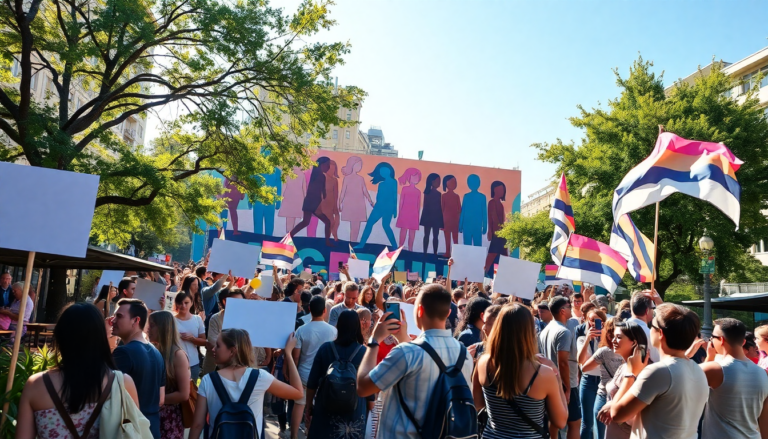Argomenti trattati
The conversation around gender identity has become increasingly intense, with celebrities often stepping into the fray to share their opinions on issues that resonate deeply within society. A recent spat between British singer Boy George and author J.K. Rowling highlights the complexities of this dialogue. With both figures boasting substantial followings, their exchanges draw significant attention to discussions about transgender rights and societal norms. But what does this feud really reveal about the current landscape of gender identity? Let’s dive in.
What Sparked the Controversy?
It all kicked off when Boy George, born George Alan O’Dowd, responded to a tweet from Rowling, who questioned the rights that had been stripped away from transgender individuals. George’s retort aimed to spotlight what he saw as a privileged perspective coming from the author. He believes that Rowling’s views were shaped by her status as a wealthy, famous individual, while he positioned himself as a champion for the marginalized. Can you see how quickly things escalated?
Rowling’s reply was sharp and layered. She pointed out their contrasting life experiences, sharing her own struggles and mentioning the legal troubles that have shadowed George in the past. This personal history became a hot topic, with Rowling suggesting that George’s previous convictions for violent behavior undermined his credibility in the debate about transgender rights. It’s fascinating how individual stories can shape perceptions of authority in public discussions, isn’t it?
The Wider Impact
Rowling’s controversial views on gender and sex have sparked a significant backlash over the years, with even her fellow Harry Potter cast members publicly opposing her stance. The reactions from the fandom have been sharply divided, with some calling for boycotts of her upcoming projects, including a new television adaptation of the beloved series. This scenario echoes a broader trend where celebrity opinions can stir public sentiment and prompt action, whether in support or opposition. What does that say about the power of celebrity in shaping societal attitudes?
As the feud unfolded, Boy George didn’t hold back, adding a layer of drama to the exchange with his pointed remarks about Rowling’s appearance and character. Some supporters saw these comments as a necessary counterattack against what they perceive to be her harmful rhetoric. In today’s climate, the debate has evolved beyond mere opinions on gender identity; it has transformed into a larger struggle over how public figures should navigate their influence on societal attitudes and behaviors.
What Lies Ahead?
As this conversation continues to develop, one thing is clear: the clash between Boy George and J.K. Rowling serves as a microcosm of a much larger societal debate. The ongoing discussions about transgender rights, the influence of public figures, and how personal histories affect credibility will undoubtedly persist. The responses from both sides underline the deep divides that exist within society regarding gender identity and rights. Will we ever find common ground?
Looking forward, the fallout from this feud could extend well beyond personal grievances. As debates about gender rights grow more pronounced in public discourse, the involvement of celebrities will likely continue to shape opinions and potentially influence policy changes. Navigating these complex issues will require careful thought and a willingness to engage in open dialogue, as society strives to approach these topics with sensitivity and respect. How do we start that conversation?

